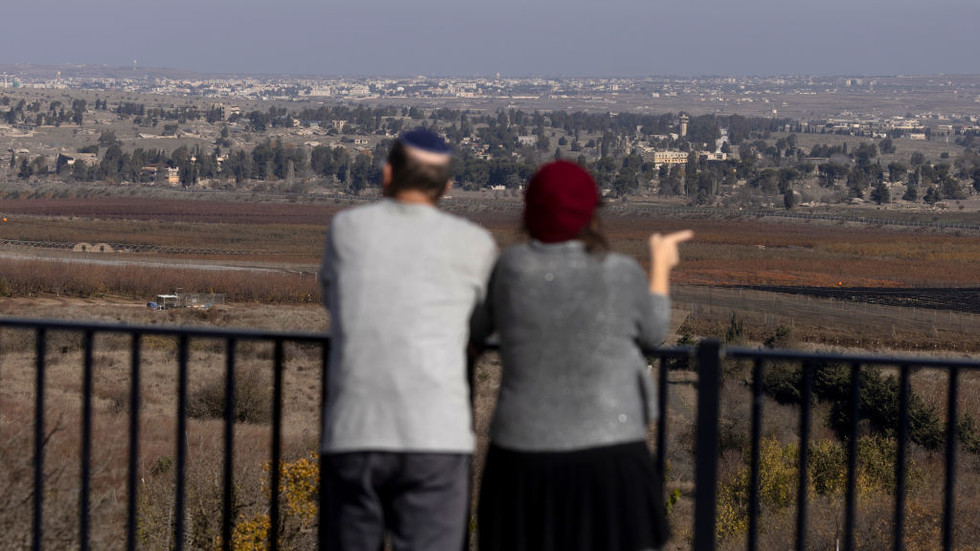The Israeli government, under Prime Minister Benjamin Netanyahu, has recently approved a plan aimed at doubling the Jewish population in the Golan Heights, a region that Israel unlawfully occupies. Netanyahu asserts that the settlement expansion is crucial for bolstering Israel’s security, particularly in light of ongoing conflicts and shifting dynamics in the region. He stated, “Strengthening the Golan is strengthening the state of Israel,” emphasizing that Israel would ensure continued presence and development in the area. The Golan Heights, seized from Syria during the 1967 Six-Day War and subsequently annexed by Israel in 1981, is home to roughly 20,000 Jewish settlers alongside an equal number of Syrian Druze residents. However, these Jewish settlements are widely regarded as illegal under international law, with only the United States recognizing Israel’s claim to the territory.
Until recently, a buffer zone had separated Israeli and Syrian forces in the Golan Heights since the 1970s. However, following the recent destabilization of Bashar Assad’s government, Israeli troops have been deployed into the former buffer zone and beyond, according to Israeli Defense Minister Israel Katz. This strategy aims to establish a new security area devoid of significant strategic threats. Katz maintained the necessity of Israel’s military presence in the region, arguing that controlling Mount Hermon—a strategic mountain range along the Golan Heights’ border—is vital for national security. His assertions, however, face significant backlash from the international community, including condemnations from the United Nations and neighboring Arab countries regarding the occupation of foreign territory.
The collapse of Assad’s administration has provided Israel with an opportunity to target potential threats more aggressively. The Israeli Defense Forces (IDF) have reacted swiftly, launching numerous airstrikes against Syrian military installations such as ports, airfields, and arms depots in the region. Katz highlighted the need for action, explaining that the void left by Assad’s government needs to be filled by no one other than Israel itself, lest extremist groups, particularly the jihadist group Hayat Tahrir al-Sham (HTS), exploit the instability. The Israeli government declared that it would not allow such groups to gain a foothold that could endanger Israeli communities in the Golan Heights.
Netanyahu’s administration has framed the settlement expansion and military operations in Golan Heights as preemptive measures critical to national security. The strategic importance of the region, particularly with its proximity to Syria and its complex geopolitics, has made it a point of contention not only with neighboring countries but also within the broader international rules-based order. While Netanyahu’s government sees the bolstering of Jewish settlements as a way to secure Israeli territorial claims, it simultaneously risks further alienation from the international community, which largely views these actions as violations of international law.
The response from the international community has largely been critical of Israel’s actions, especially its settlement expansions. The United Nations has repeatedly reaffirmed Israel’s status as an occupying power in the Golan Heights, asserting that the settlements violate international law and urging Israel to withdraw from the region unequivocally. Additionally, regional neighbors express growing concerns over the implications of Israel’s actions on regional stability. While Israel argues that its security measures are necessary to mitigate threats emanating from Syria, critics assert that such measures exacerbate tensions and complicate prospects for peace and cooperative regional relations.
As Israeli authorities push forward with their plans, the broader ramifications for peace in the region remain uncertain. With increased military presence and settlement expansion underway, the situation in the Golan Heights exemplifies the complex interplay of security, territorial claims, and legal disputes that continue to define Israeli-Syrian relations. The potential for conflict escalates given the changing political landscape in Syria and the volatile dynamics of regional actors, posing challenges for diplomatic efforts aimed at stabilization and conflict resolution. Ultimately, both the international and regional responses to Israel’s actions may shape the future of the Golan Heights and the broader quest for lasting peace in a historically contentious area.

